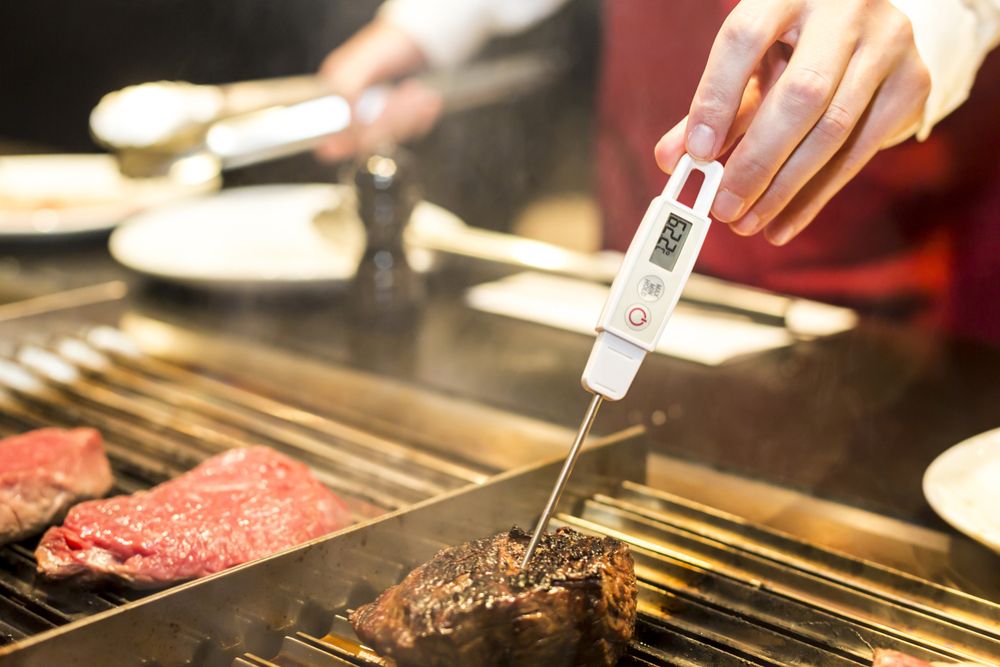The internet has made it easier than ever to plan travel and find deals, but it’s also opened up new avenues for scammers. Fake travel deals and scams can lead to lost money, stolen personal information, and disrupted travel plans. Knowing how to spot these scams can help you avoid falling victim and ensure that your hard-earned vacation goes smoothly. Here’s how to identify travel scams and book only legitimate deals.
1. Verify the Website’s Legitimacy
Fake travel websites can look professional, making it essential to verify the legitimacy of any site before booking a deal. Many scammers create websites that closely resemble legitimate ones or use subtle changes in URLs to trick travelers.
How to Spot Fake Websites:
- Check the URL: Look for subtle URL differences, like “.co” instead of “.com.” Ensure the URL begins with “https://” to indicate it’s secure.
- Research the Company: Search for the company’s name along with terms like “scam” or “reviews.” Reputable companies should have reviews from multiple sources.
- Use Trustworthy Booking Sites: Stick to well-known booking platforms like Expedia, Booking.com, and Airbnb. These sites have built-in security measures and often provide customer support if issues arise.
Only book through websites you trust, and always double-check URLs to make sure you’re on the correct site.
2. Look for Secure Payment Options
Legitimate booking sites offer secure payment options and never ask for untraceable methods like wire transfers, money orders, or cryptocurrency. Scammers often use these methods because they make it nearly impossible to recover funds if a scam occurs.
Secure Payment Methods to Use:
- Credit Cards and PayPal: Credit cards and PayPal offer buyer protection, allowing you to dispute fraudulent charges.
- Avoid Direct Bank Transfers: Scammers often ask for bank transfers since these payments are harder to trace and recover.
- Look for “Secure” Icons: Reputable sites have a padlock icon in the address bar and begin with “https://,” indicating secure transactions.
Paying with a secure method provides extra protection, ensuring you can address any disputes if necessary.
3. Be Skeptical of “Too Good to Be True” Prices
If a deal seems too good to be true, it probably is. Scammers use steeply discounted prices to lure travelers into booking with them, only for travelers to find out later that the offer was fake.
Red Flags for Suspiciously Low Prices:
- Compare with Other Sites: If a price is significantly lower than other websites, it’s likely a scam. Cross-check the deal on reputable sites to see if the discount aligns.
- Avoid Sites with “One-Time” Flash Sales: Scammers often create fake urgency, claiming a limited-time deal to pressure you into booking immediately.
- Look for Extra Fees or Hidden Costs: Some sites will add hidden fees at checkout, which may indicate it’s not a legitimate deal.
If a deal looks far cheaper than anywhere else, take a step back and investigate before booking.
4. Research Accommodations on Multiple Platforms
If you’ve found a great deal on an unfamiliar website, check for the same accommodation on popular platforms like Airbnb, Booking.com, or TripAdvisor. Reading reviews on multiple sites can help confirm whether a listing is legitimate.
How to Cross-Verify Accommodations:
- Check Reviews Across Platforms: Look for consistent reviews on sites like Google, Yelp, and TripAdvisor.
- Search for the Accommodation’s Website: Many hotels and resorts have their own sites where you can find contact information to confirm availability.
- Use Reverse Image Search: If an accommodation’s photos seem questionable, use Google’s reverse image search to see if they’ve been copied from other sites.
Cross-checking helps confirm that the accommodation is legitimate and not a fake listing.
5. Contact the Hotel or Airline Directly
When booking through third-party sites, it’s always wise to contact the hotel or airline directly to confirm your reservation. Scammers often sell fake reservations, leaving travelers without a booking upon arrival.
Steps to Confirm Your Booking:
- Call or Email the Hotel or Airline: Use the contact information on the hotel or airline’s official website, not a number provided by the third-party site.
- Request Confirmation Details: Ask for a booking confirmation to ensure your reservation exists in their system.
- Double-Check Cancellation Policies: Verify the cancellation policy directly with the hotel or airline, as scammers may create fake terms.
Confirming details directly with the provider can reveal fake bookings before you arrive at your destination.
6. Be Wary of Unsolicited Offers and Emails
Scammers often send unsolicited emails or messages offering exclusive travel deals. These emails may contain malicious links or ask you to input personal information on fake websites.
How to Handle Unsolicited Travel Deals:
- Check for Generic Greetings: Scammers often use vague greetings like “Dear Customer” instead of your name.
- Avoid Clicking on Links in Emails: Go directly to the travel provider’s website instead of clicking on links in unsolicited emails.
- Look for Red Flags in Email Addresses: Legitimate companies don’t use personal email domains (e.g., Gmail or Yahoo) to send official emails.
Unsolicited offers are often red flags, so verify deals directly with the provider if something seems off.

7. Confirm Travel Insurance Offers
Many travel scammers advertise travel insurance with enticing prices but provide no coverage. If you’re buying travel insurance, make sure it’s from a well-known provider, and review what’s covered in detail.
How to Avoid Fake Travel Insurance:
- Research Reputable Providers: Companies like Allianz, World Nomads, and Travel Guard are reputable and provide legitimate travel insurance.
- Read the Policy Details: Scammers may offer vague or misleading policies with little actual coverage.
- Verify the Insurance License: Legitimate insurance providers are licensed, so check the company’s website or ask for proof of licensing.
Always buy travel insurance directly from a reputable company, not through a third-party deal that seems too good to be true.
8. Use Trusted Reviews and Forums
Travel forums like TripAdvisor and Reddit have extensive traveler reviews and insights, which can help you verify the legitimacy of a deal. Other travelers often share red flags they encountered, giving you a heads-up on potential scams.
Where to Find Reliable Information:
- TripAdvisor: Look for reviews from other travelers about the hotel, destination, or booking site.
- Reddit Travel Communities: Many subreddits, like r/travel and r/solotravel, have discussions on avoiding scams and finding trustworthy deals.
- Travel Blogs and Review Sites: Many travel blogs review popular booking sites, airlines, and hotels, providing advice on reliable sources.
Using traveler forums and review sites can provide valuable insights and confirm whether a deal is worth considering.
9. Be Careful with Vacation Rental Scams
Vacation rentals are particularly susceptible to scams, as listings can easily be faked. Common scams include bait-and-switch listings or non-existent properties advertised at attractive prices.
How to Avoid Vacation Rental Scams:
- Use Reputable Platforms: Stick to well-known vacation rental sites like Airbnb or Vrbo, which have buyer protection policies in place.
- Avoid Direct Payments: Scammers may ask for direct payment outside of the rental platform. Always complete the booking and payment on the official platform.
- Look for Verified Listings: Many platforms label trusted listings as “Verified,” meaning they’ve been checked for authenticity.
Avoiding direct payments and booking through trusted platforms helps protect you from vacation rental scams.
10. Use Travel Booking Apps with Caution
While travel booking apps can be convenient, not all are legitimate. Only download apps from trusted sources like the Apple App Store or Google Play, and read reviews before making a purchase.
Steps to Confirm App Legitimacy:
- Check Download Numbers and Ratings: Trusted travel apps usually have high download numbers and positive ratings.
- Read User Reviews: Reviews can indicate if users have had negative experiences or encountered fake deals.
- Verify the Developer: Look for reputable developers with verified contact information or websites.
Sticking to well-rated apps from reputable sources helps ensure you’re dealing with a legitimate booking platform.
11. Avoid Last-Minute Requests for Additional Payments
Some scammers will request additional fees, often for vague reasons, just before your trip or right after booking. Legitimate travel providers should disclose all fees upfront.
How to Handle Unexpected Payment Requests:
- Contact the Provider Directly: Reach out to the airline, hotel, or booking platform directly to confirm if additional fees are valid.
- Refuse Payments Outside the Platform: Legitimate companies won’t ask for extra payments outside the original platform.
- Check for Clauses in Terms and Conditions: Verify the terms of your booking to see if extra fees were disclosed at the start.
Unexpected payment requests should raise suspicion, especially if they appear close to your travel date.
12. Check for SSL Security and Encryption
Secure websites use SSL encryption to protect your data. If a travel website doesn’t have SSL (indicated by “https://” in the URL), it may not be safe for entering personal or financial information.
How to Ensure a Site is Secure:
- Look for the Padlock Icon: A padlock icon in the address bar means the site is encrypted and more secure for transactions.
- Avoid “http://” Sites: Sites without SSL encryption (http://) aren’t secure and may put your information at risk.
- Use Payment Security Features: If the site offers secure payment methods (like Verified by Visa or Mastercard SecureCode), it adds an extra layer of security.
Ensuring SSL security protects your information from hackers and ensures that your transactions are secure.
Spotting travel scams requires vigilance, but with the right steps, you can protect yourself and ensure that your trip goes off without a hitch. By researching websites, using secure payment methods, and verifying your bookings, you’ll be able to enjoy your vacation without worrying about scams. Taking these extra precautions helps you secure real deals and make the most of your travel experience. Safe travels!





